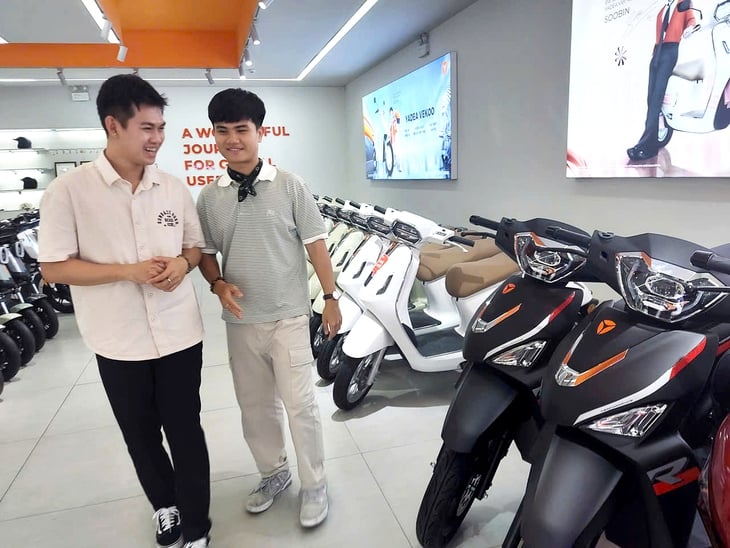
Not only students, but electric vehicle customers also include housewives and office workers - Photo: N.AN
According to a market research by Mordorintelligence, the size of the Vietnamese electric vehicle market is estimated to reach 2.93 billion USD in 2025 and is expected to reach 6.69 billion USD in 2030, with a compound annual growth rate (CAGR) of 18% in the forecast period (2025-2030). Therefore, according to experts, along with the demand for electric vehicles, charging stations and electricity supply infrastructure for vehicles are increasing.
Race to expand investment and diversify products
According to a survey by Tuoi Tre in many electric motorbike shops in the Hanoi area, the demand for electric motorbikes is becoming more and more diverse. According to Mr. Hung - the owner of a motorbike - electric motorbike shop on Tran Phu Street, customers are not only students but also office workers, individuals providing delivery services and middle-aged customers.
With a common price of 10-20 million VND/vehicle, car manufacturers are increasingly competing not only on selling price but also on the technology integrated into each electric motorbike, bringing convenience and new experiences to customers. Among them, the Chinese car manufacturers have the majority of market share and many choices for customers.
Vietnam.
"With the policy of changing from gasoline cars to electric cars, many customers have researched car models to calculate the conversion of this vehicle. Using electric cars as a mandatory means of transport also makes customers have to change their mentality from being cautious to considering the choice of use, when electric cars have quite competitive costs and are increasingly more optimal, convenient and intelligent to use" - Mr. Hung assessed.
It can be seen that in the market there are domestic and joint venture motorbike brands such as DKBike, Page, Selex, Motors, VinFast , Dat Bike, Nijia, Detech... Meanwhile, many electric motorbike brands have started to enter the Vietnamese market, expanding production scale such as Yadea, Tailg... Some gasoline motorbike brands such as Honda, Yamaha, Piaggio, Suzuki... have also started to enter the market with some vehicle lines.
While there are only a few large-scale electric motorbike manufacturers in Vietnam, the majority are small-scale, newly started or have limited financial resources, foreign car manufacturers are all very large-scale. Notably, the new products launched on the market by these car manufacturers are increasingly improving modern technological features, smart use and higher performance.
With Vietnam's electric motorbike market share increasing from 5.4% in 2019 to 10% in 2021 and continuing to increase to 12% in 2022, and forecast to continue to maintain double-digit growth at a higher level in the coming time, this is considered an attractive piece of cake for electric motorbike manufacturers in Vietnam.
Vietnam.
Remove charging station barriers and ensure safe use
According to statistics from Motorcycles Data, Vietnam's electric motorbike market recorded strong growth in the first half of 2025. By the end of June 2025, sales of motorbikes with engines under 50cc increased by 112.6%.
In particular, small-sized cars are prominent in attracting customers, so many major car brands have launched new product lines with incentive and discount programs. With the car line over 50cc, sales growth reached 52.6%, meeting the increasingly diverse consumer needs of customers.
However, in our discussions, many manufacturers said that the consumer psychology of electric motorbikes is still a big barrier. Although the initial investment cost of electric motorbikes is lower than that of gasoline motorbikes, the charging time takes from 6-8 hours for motorbikes that can run about 100km.
Therefore, the charging station infrastructure that meets the consumer demand for electric motorbikes, along with the requirement to ensure fire safety, is an issue. Therefore, along with launching a variety of models to meet consumer demand, some electric motorbike manufacturers are calculating to invest in combining charging stations and upgrading battery performance.
tram.
Mr. Liu Jia, General Director of Yadea Vietnam, said that with the goal of being at the top of the market, accounting for over 40% market share, the company is calculating to expand the charging station ecosystem with a nationwide network, combining with domestic and foreign investors to increase the coverage of electric vehicle use, ensuring convenience and higher efficiency.
However, it is desirable to have charging station planning policies with clear standards, especially for charging stations in residential areas and commercial centers.
Meanwhile, according to Mr. Bui Hai Nam, General Director of DIMEC Charging Solutions Joint Stock Company, a partner implementing the V-Green charging station franchise business model of VinFast, the increasing demand and trend of using electric vehicles has made the charging station investment market increasingly vibrant.
"The whole country has about 5,000 charging stations with 55,000 charging guns, so the demand for investment in charging stations, especially small-scale stations, is increasing. With the new charging station system only meeting about 3% of the demand, investing in charging stations is not only a fertile cake for investors, but also addresses concerns about the safety of electric vehicle users," he said.
Nam said.

People have started to get used to using electric motorbikes for daily transportation. Photo of people using electric motorbikes on Nam Ky Khoi Nghia Street (Xuan Hoa Ward, Ho Chi Minh City) - Photo: THANH HIEP
Many preferential policies to attract customers
To compete in the market, in addition to competitive prices, Chinese electric motorbike companies in Vietnam have implemented many support policies such as offering preferential consumer finance packages for customers, subsidies for old-car-for-new-car exchange programs, maximum incentives of up to 2 million VND or lucky draws...
Not only Chinese electric car manufacturers, many electric car manufacturers in Vietnam are also racing to attract customers. Most recently, VinFast launched two versions of electric motorbikes Evo Grand and Evo Grand Lite, with the feature of supporting two removable batteries for external charging, with a maximum travel range of 262km.
To stimulate demand, this company has launched a preferential and supportive policy for customers with registered residence in Hanoi, who will receive a car with 0 VND of initial capital. Drivers who buy a car through GSM and register on the Green SM Platform will even receive 10% of the car price and pay the rest in installments within a maximum period of 3 years.
Individual consumers are also supported by VinFast with 10% of the car price, and only need to pay 10% of the car price in advance, the remaining 80% can be paid in installments, and 100% of the registration fee is supported for consumers buying electric motorbikes in Hanoi.
Chinese electric car company invests in expanding factory in Vietnam
Mr. Liu Jia believes that the policy of converting gasoline cars to electric cars is considered a golden opportunity for electric car manufacturers in Vietnam.
Therefore, this enterprise not only focuses on investing in expanding strategic product lines, with a system of stores up to 1,000 points of sale, but also decides to invest in a new factory in Bac Giang (old) to increase capacity to 2 million units/year, compared to the current output of 300,000 vehicles.
"With the Government's incentive policies, businesses will have more opportunities to promote the transition to green transportation, so that is the reason for us to continue investing in expanding production capacity, increasing the localization rate, and promoting research and development," said Mr. Liu Jia.
Source: https://tuoitre.vn/nha-san-xuat-dua-mo-rong-dau-tu-thi-truong-xe-may-dien-soi-dong-20250814225443064.htm





![[Photo] Prime Minister Pham Minh Chinh meets with representatives of outstanding teachers](https://vphoto.vietnam.vn/thumb/1200x675/vietnam/resource/IMAGE/2025/11/15/1763215934276_dsc-0578-jpg.webp)
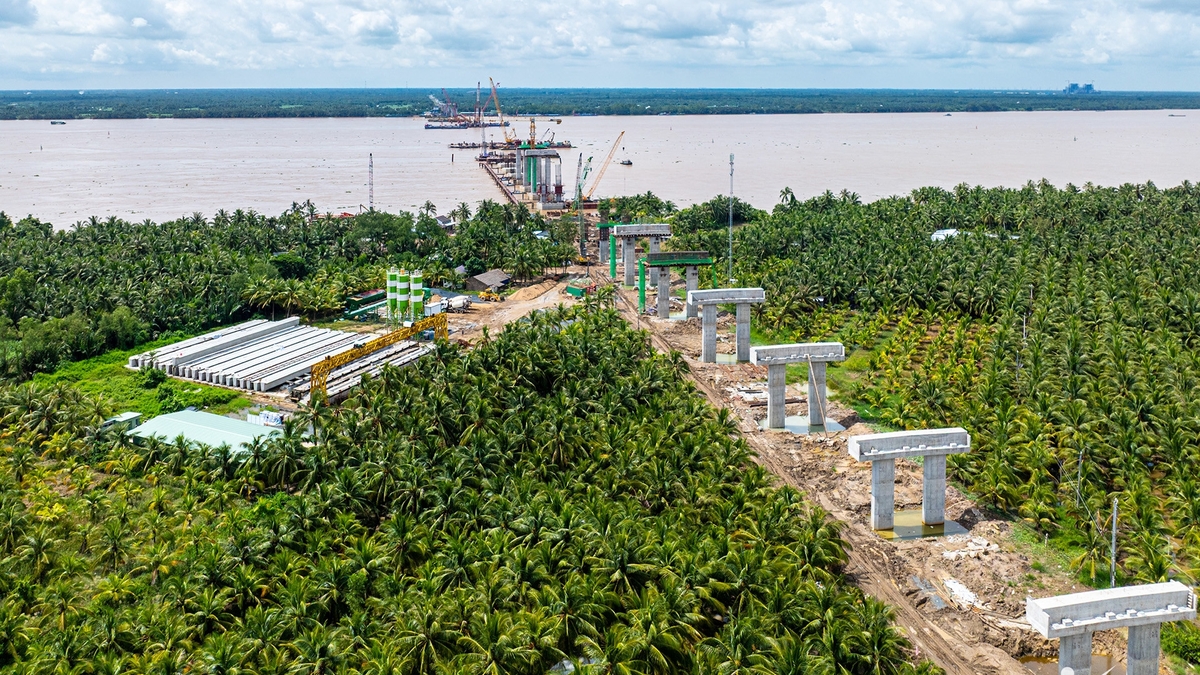

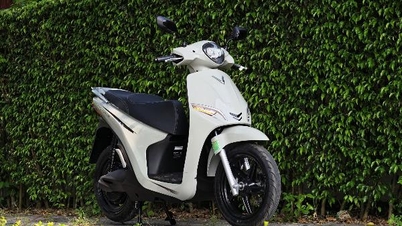

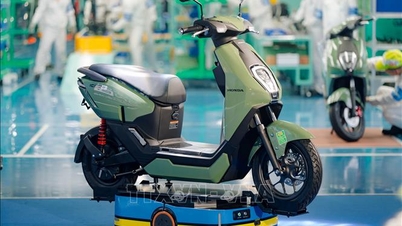

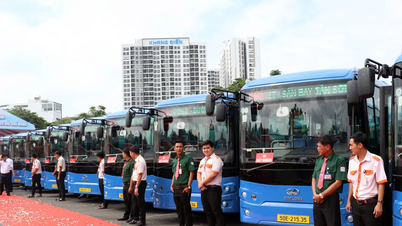

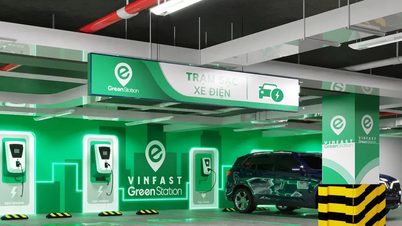
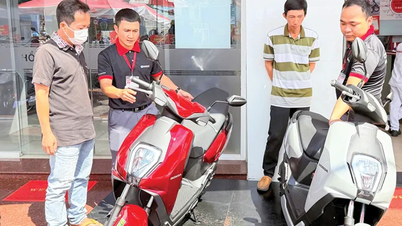



























































































Comment (0)